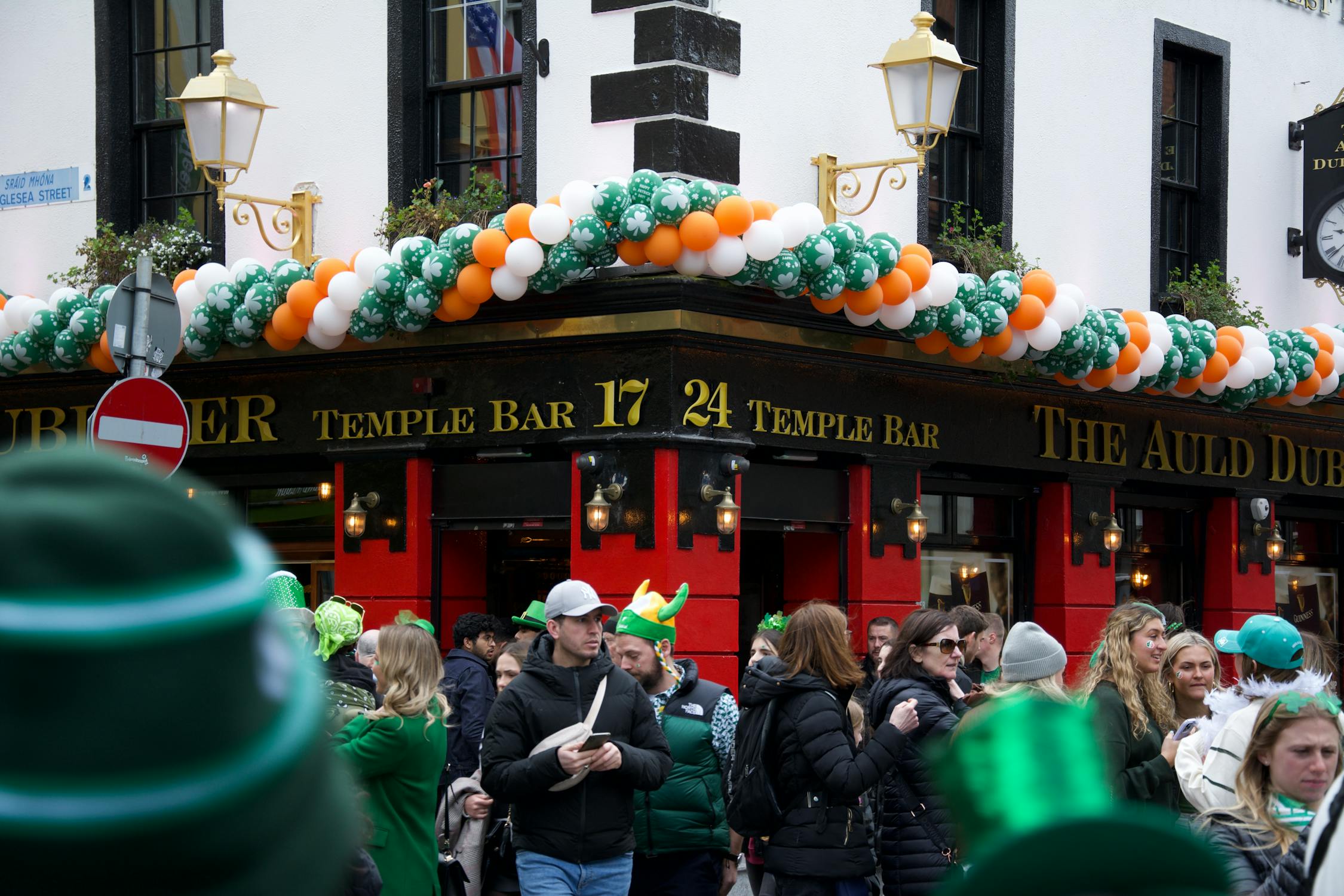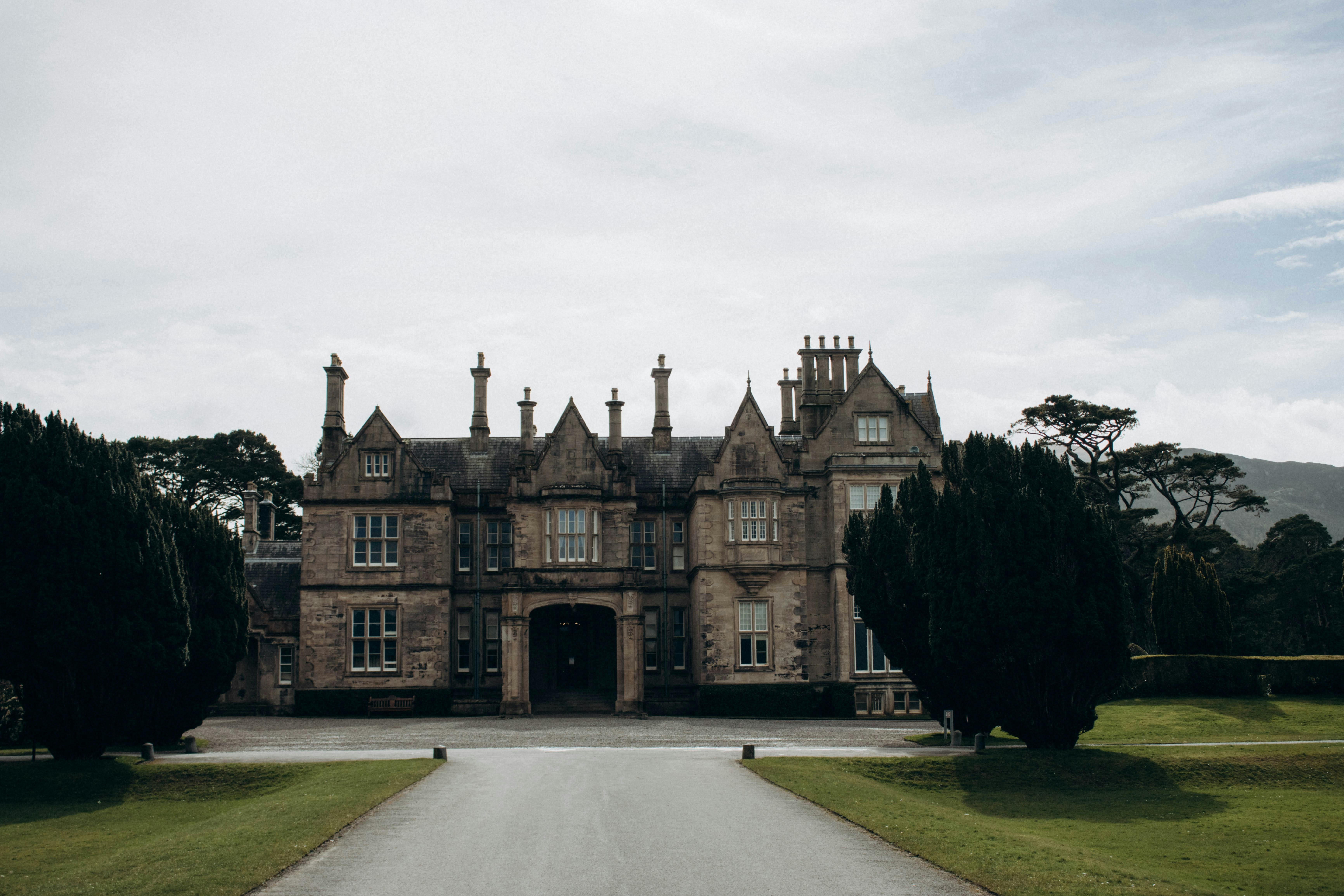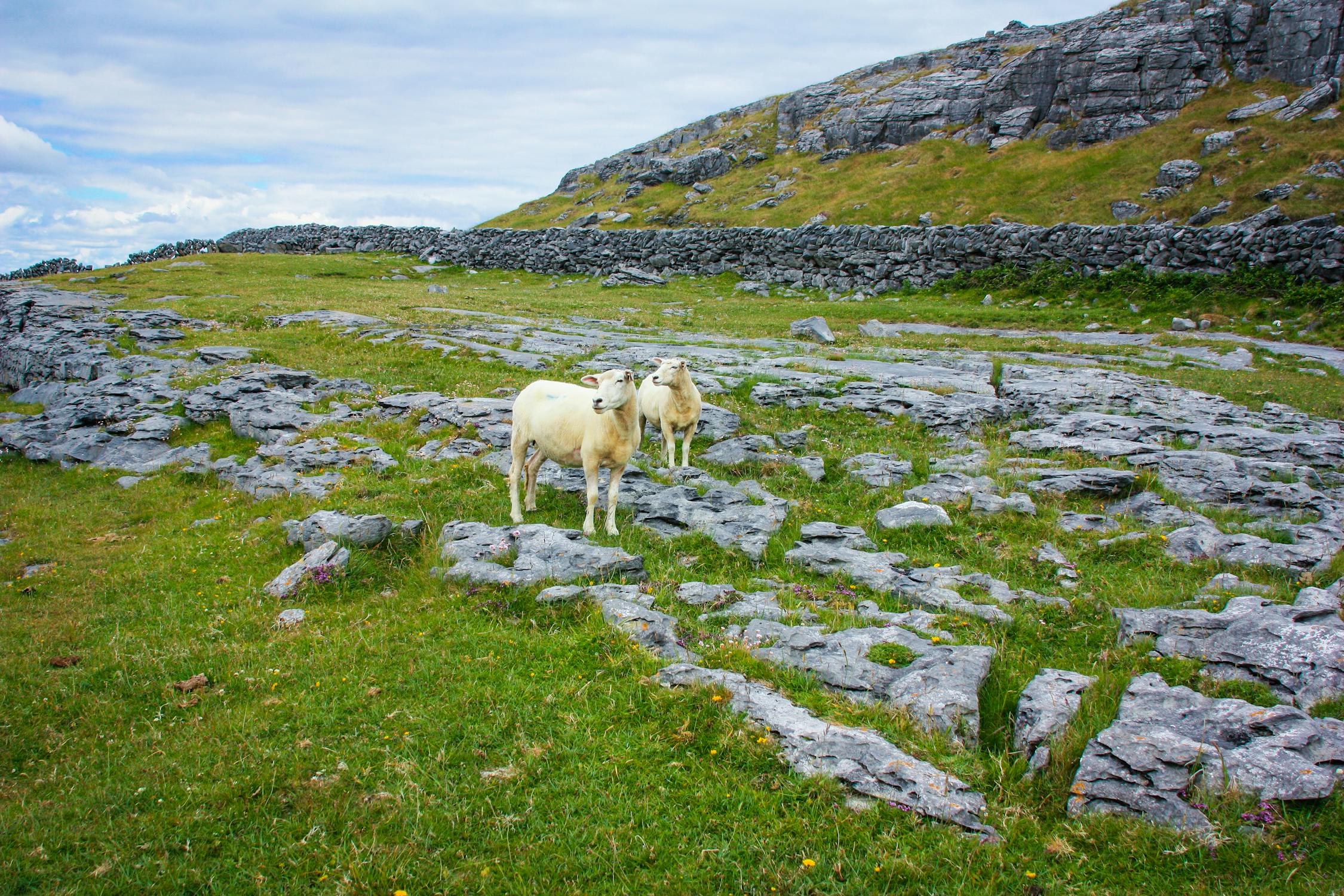Posted by on 16 Apr 2025
Ireland’s cultural calendar is packed with celebrations that showcase the country’s heritage and community spirit. From St. Patrick’s Day to lesser known historical celebrations like Bloomsday, Ireland festivals give travellers an authentic look into Irish culture.
Whether you're travelling with family or exploring solo, experiencing the customs and traditions in Ireland creates lasting memories and deeper understanding of this unique country.
Winter Wonders: Celebrating the Celtic New Year
Ireland’s winter festivals are rooted in history and celebration. With activities suitable for all ages, they are perfect for solo and group travellers worldwide.
The Festival of Samhain: Ireland's Ancient Halloween
Long before Halloween became a global phenomenon, the Festival of Samhain in Ireland marked the Celtic new year and the transition from harvest season to winter darkness. This ancient celebration, dating back over 2,000 years, is considered the precursor to modern Halloween.
Today, the Festival of Samhain, Ireland's ancestral celebration, is experiencing a revival with atmospheric events across the country. In Dublin, the Bram Stoker Festival pays homage to the "Dracula" author with gothic-themed performances and parades. For an authentic experience, visit Tlachtga (Hill of Ward) in County Meath, the original site of Samhain celebrations, where fire ceremonies still illuminate the ancient landscape.
While exploring Dublin's rich cultural offerings, you'll discover how contemporary Halloween festivities maintain connections to these ancient roots, with bonfires, storytelling and costume traditions that echo practices from millennia past.
Christmas and Winter Solstice
As midwinter approaches, Ireland hosts festive markets and carol services, while maintaining unique customs and traditions in Ireland where Christian celebrations incorporate elements from earlier pre-Christian practices.
The Newgrange Winter Solstice illumination, where the rising sun aligns perfectly with an ancient passage tomb, draws visitors worldwide to this 5,000-year-old architectural marvel.
Christmas in Ireland retains distinctive traditions, including the placing of a candle in the window on Christmas Eve (originally a signal of haven for Mary and Joseph) and the "Wren Boys" tradition on St. Stephen's Day, where costumed performers once carried a wren from house to house, collecting money for charity.
Spring Awakenings: St. Patrick's Day and Beyond
Spring brings Ireland's most internationally recognised celebrations, combining religious observances with cultural festivities that showcase the nation's heritage.
St. Patrick's Festival
No list of the best festivals in Ireland would be complete without St. Patrick's Day. This national holiday has evolved from a religious observance to a multi-day celebration of Irish culture that captivates the world. Dublin hosts the largest festivities, with spectacular parades, street performances and buildings illuminated in green.
However, smaller towns often offer more intimate and authentic celebrations. Downpatrick, where St. Patrick is reportedly buried, holds a traditional pilgrimage, while Armagh, where he established his first church, features historical tours and folklore events.
Bealtaine and May Day
As spring fully blossoms, Ireland celebrates Bealtaine, the ancient Celtic festival marking the beginning of summer. Throughout rural Ireland, May Day traditions in Ireland include decorating homes with yellow flowers and the gathering of morning dew, believed to maintain youthfulness when applied to the face.
Modern interpretations of this festival include the Uíbh Fhailí (Offaly) Bealtaine Festival, which features workshops, concerts, and ceremonies that connect younger generations with age-old customs and traditions in Ireland. The lighting of bonfires, a practice dating back thousands of years, continues in many communities, symbolising purification and protection.
Summer Celebrations: Music, Literature, and Ancient Rites
Summer in Ireland offers a diverse calendar celebrating the country's rich musical heritage, literary achievements and connections to ancient Celtic traditions.
Traditional Music Festivals
Summer brings a magnificent array of festivals showcasing Ireland's rich musical heritage. The Willie Clancy Summer School in County Clare combines traditional music masterclasses with concerts and céilís (traditional social gatherings with Gaelic folk music and dancing).
The Fleadh Cheoil, Ireland's most significant traditional music festival, rotates locations annually and features competitions, street performances and impromptu sessions in local pubs. These events preserve and evolve Irish musical traditions through cross-cultural collaborations and innovations.
Bloomsday and Literary Festivals
Ireland's literary heritage is celebrated through festivals like Bloomsday (16 June), when Dublin commemorates James Joyce's "Ulysses" with readings, performances and themed walking tours. Many participants dress in Edwardian attire and retrace the novel's protagonist's route through the city.
While literary enthusiasts gather in Dublin, consider extending your journey to visit some of the castles of Ireland, many of which have inspired generations of Irish writers and poets with their dramatic landscapes and rich histories.
Summer Solstice
The summer solstice brings ancient sites like the Hill of Tara to life as people gather to connect with traditions in Ireland that predate written history. Modern celebrations blend respect for archaeological treasures with contemporary interpretations of Celtic spirituality, creating spaces where history feels vibrantly present.
Autumn Harvests: Gathering Traditions
Harvest Festivals
As summer turns to autumn, agricultural shows and harvest festivals celebrate Ireland's farming heritage. Surprisingly, the National Ploughing Championships, one of Europe's largest outdoor events, combines agricultural competitions with cultural exhibitions, food stalls and fashion shows.
Puck Fair in County Kerry features one of Ireland's most unusual traditions: a wild mountain goat is crowned "King Puck" and presides over three days of festivities from an elevated platform before being safely returned to the mountains.
Oyster Festivals
Galway's International Oyster Festival exemplifies how Ireland festivals often centre around food. Since 1954, this event has celebrated the oyster harvest with shucking competitions, champagne pairings and elaborate seafood feasts. It perfectly demonstrates how culinary traditions in Ireland create community connections while showcasing local produce.
Unique Irish Traditions Throughout the Year
The Leap Year Tradition
One of the most famous leap-year traditions in Ireland involves women proposing to men on 29 February. This practice dates back to the 5th century, when St. Bridget complained to St. Patrick about women having to wait for proposals. St. Patrick then granted women this one day every four years to propose to hesitant suitors.
While largely viewed as folklore today, this leap year tradition in Ireland still captures imaginations and occasionally inspires themed events during leap years.
Family Traditions
Family traditions in Ireland remain central to cultural identity. Rural areas still hold practices like "station masses" (where Catholic mass is held in private homes). Passing down traditional skills—from Irish dancing and music to storytelling—remains an important aspect of family traditions that connects generations.
Many visitors find that experiencing these intimate customs and traditions in Ireland through homestays or small-group tours offers the most authentic cultural immersion.
Sustainable Festival Practices
As environmental awareness grows, many Ireland festivals now incorporate sustainable practices. The Electric Picnic music festival has pioneered green initiatives, while smaller events increasingly emphasise local sourcing, reusable materials and reduced carbon footprints.
Planning Your Festival Journey Through Ireland
The best festivals in Ireland are spread throughout the calendar, making any time a good time to visit. However, for the most vibrant cultural experiences, consider these peak periods:
February to March for St. Patrick's Day and spring awakening celebrations
June to August for music, literary festivals, and outdoor events
Late October for authentic Samhain/Halloween experiences
December for traditional Christmas markets and winter solstice
For personalised advice on timing your visit to coincide with specific Irish festivals, contact our Entire Travel's specialists. Our experienced agents can help you craft an itinerary that allows you to experience the richness of Irish traditions while enjoying comfortable accommodations at reasonable prices.
Experiencing Ireland's Living Cultural Heritage
From ancient Celtic observances to contemporary interpretations, Ireland festivals offer windows into a culture that treasures its history and capacity for joyful celebration. By participating in these events, travellers don't just observe but become temporary participants in living traditions that have evolved over centuries yet remain authentically Irish.
Whether you're drawn to the pageantry of major Ireland festivals or the intimate charm of local celebrations, these cultural experiences enrich your understanding of Ireland's unique heritage and inspire new traditions of your own.


